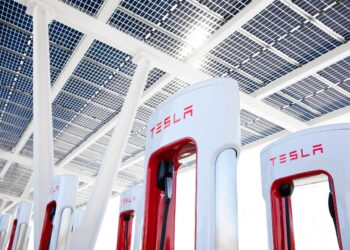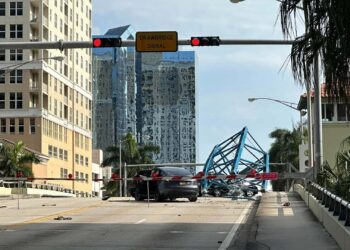
The conflicts in the Red Sea area and attacks on transport vessels are starting to affect the European economy, which sources components from Asia.
According to Reuters, Tesla announced that it will have to suspend most of its electric car production at the Tesla Giga Berlin-Brandenburg plant in Grünheide near Berlin, Germany for two weeks, from Jan. 29 to Feb. 11.
Get Fully Charged
Tesla EVs in Europe come from various plants
The Tesla Giga Berlin-Brandenburg is Tesla’s only electric car factory in Europe, which produces the Model Y. The Model 3, on the other hand, is imported from China, while the Model S and Model X are imported from the U.S.
The manufacturer said in a statement that the reason for that is a lack of components: “The armed conflicts in the Red Sea and the associated shifts in transport routes between Europe and Asia via the Cape of Good Hope are also having an impact on production in Gruenheide. The considerably longer transportation times are creating a gap in supply chains.”
We don’t know what components are missing, but Tesla is using a lot of parts from China, including the 2170-type cylindrical lithium-ion battery cells from LGES’ factory.
Reuters points out that Tesla is the first carmaker to disclose a resulting interruption to output, although it’s believed that other manufacturers are also affected. The disruption already hit some other industries, like the Swedish home furnishing company Ikea, which warned of delays in deliveries.
It seems that after the lockdowns applied a few years ago, and the most recent war in Ukraine, the situation in the Red Sea is another hit to the European economy and supply chains, underlying how important it is for local production of components.
Even without a full-scale war in the Red Sea area, which would definitely prevent the Suez Canal route, the major transportation routes are significantly affected. Ships must take a longer route around Africa and the Cape of Good Hope.







